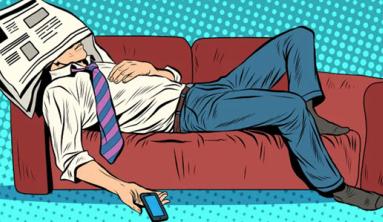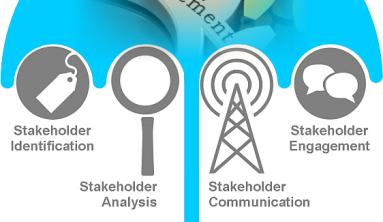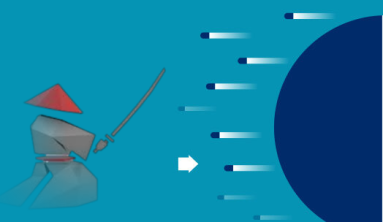I am always amazed at how the way that we perceive other people impacts the communication situations that we are involved in. For example, if you perceive that your neighbor does not like you then the way you behave and communicate with that neighbor in a simple conversation will be different that if you perceived that they did in fact like you. This occurs whether that neighbor actually likes you or not, since your actions are based upon your perceptions. Essentially, our perceptions are how we attach meaning to a situation and relate it as relevant to our own lives. However, people can easily make erroneous assumptions when building these perceptions leading to a false perception of a particular situation or person. That’s where the trouble can begin.
According to Lewicki and Saunders in their 4th edition of their excellent bookEssentials of Negotiation, there are four common ways that perceptions can be distorted and potentially produce communication and negotiation errors. They are stereotyping, the halo effect, selective perception and projection. Let’s step through each of these items in greater detail.
Stereotyping
Simply said, stereotyping occurs when you mentally categorize the other party in a group which has a set of generalized characteristics assigned to that group. For example, say you are driving down the road and suddenly you come upon a car in front of you that is driving slowly. As you are passing the car, you peer into the car to see who is driving and you see a woman in the driver’s seat with gray hair. Your stereotyping brain kicks in and thinks at rapid speed: grey hair – must be old – that’s why she’s driving slowly. In this example, “old people drive slowly” is the stereotype. Stereotypes can certainly be convenient for general categorization of people, but they can also lead to untrue assumptions about the other party. Take my elderly mother as an example. Her hair is not grey, she has a totally hot two-seater sports car and she doesn’t drive at all like a great-grandmother might be expected to drive.
Halo Effect
The halo effect is similar to stereotyping except that the generalization you make is on a specific attribute that the other party in your conversation possesses.

For example, you may find that you are far more likely to judge a person that smiles at you as honest and trustworthy while a person who frowns at you may be judged less honest based solely upon their expression. Of course, we all know that people are quite capable of smiling at us and lying at the same time! Interestingly enough, the halo effect can be a positive or negative thing that we tend to use when we know nothing about the other party. The halo effect helps us look for something about that person that will help us to categorize them in some way. For example, you might look at a wealthy relative and judge that because they are wealthy that they must also be a greedy person.
Contrast effect
Contrast effect is an unconscious bias that happens when two things are judged in comparison to one another, instead of being assessed individually.
Our perception is altered once we start to compare things to one another. We tend to judge them relative to each other rather than on their own merit.
Contrast effect can occur at different points in time - I may compare an object I’m looking at to one I saw yesterday.
This effect can be both conscious and unconscious, since we might not even be aware that we’re making a comparison.

There a two types of contrast effect:
- Positive contrast effect: something is viewed as better than it would usually be when being compared to things that are worse.
- Negative contrast effect: something is viewed as being worse than it would usually be when compared to something better.
Selective Perception
Selective perception helps us to reinforce our prior beliefs about someone, and it doesn’t seem to matter much if those prior beliefs are true or false. Selective perception can strengthen our stereotypes and our use of the halo effect. This has an additive impact on how we perceive other people. Once we have categorized the other party into a stereotype, we tend to dismiss information about the other party that doesn’t fit with that particular stereotype. I think of this as human nature at work, and find myself fighting against a predisposition to stereotype and then reinforce that stereotype. Using the previous example of the elderly driver going slow, it is easy to see how we could continue to collect data that reinforces our stereotype of elderly drivers versus acquiring and believing data which strikes that perception down. You might dismiss my mother as an elderly driver altogether and eliminate the need to add her to your data collection of stereotypical “slow-driving elderly” folks.
Projection
Projection can result in a very negative communication situation. Be careful that you don’t project your own perceptions of yourself, of others and of the world in general onto the other party and assume that they think and feel just as you do. It is human nature to project, but it is rarely an accurate perception. The underlying purpose of our tendency to project is to create a commonality with the other party by assuming they have the same quirks as we do. For example, pretend that you are perpetually early to appointments and that bothers you since you feel you are actually wasting time by being early and often waiting for things to happen once you get there. You might find that you also have a tendency to project your feeling of bother onto the other party and assume that they are bothered by your tendency to be early as well, although that may not be the case. The other party may be grateful that you were early to the appointment, as it allowed them to start early on this task and have more time later in the day for other concerns.
Keeping these four perception issues in your mind can certainly assist you in being more effective in dealing with other folks as they are versus as you might quickly categorize them to be. Accurately assessing situations and the people across the table from us through our individual perceptions can be quite challenging. I often remind myself that the other party may well be exercising their perceptions to categorize me as well.
Source: Internet






